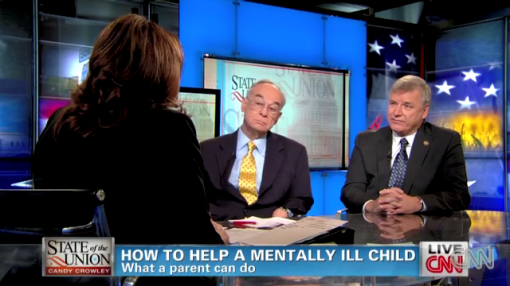
I believe all of us should do our best to fight stigma. It might be as simple as not laughing when someone tells a joke that belittles a person with a mental disorder. Or it could be as bold as launching a boycott of a business whose commercials or product names are stigmatizing.
This week, Karen Easter, in Knoxville, Tennessee, became appalled when she saw an offensive video clip that was posted on the website of the Knoxville News Sentinel newspaper. The clip had been taken with a cell phone and it showed an adult man talking off his clothes and walking down the center of a busy shopping mall. The story that accompanied the clip reported that the man had removed his clothing because he believed there were “snakes in his pants and he had pain in his legs.” You could hear the person who took the video laughing at the sight and the website story immediately attracted a score of sarcastic comments along the ilk of “spitting snakes” and other sexual innuendos.
The caption called the man a “streaker” but when you read the story, it became clear that this young man had a mental problem. He was taken by the police to a local mental health center.







